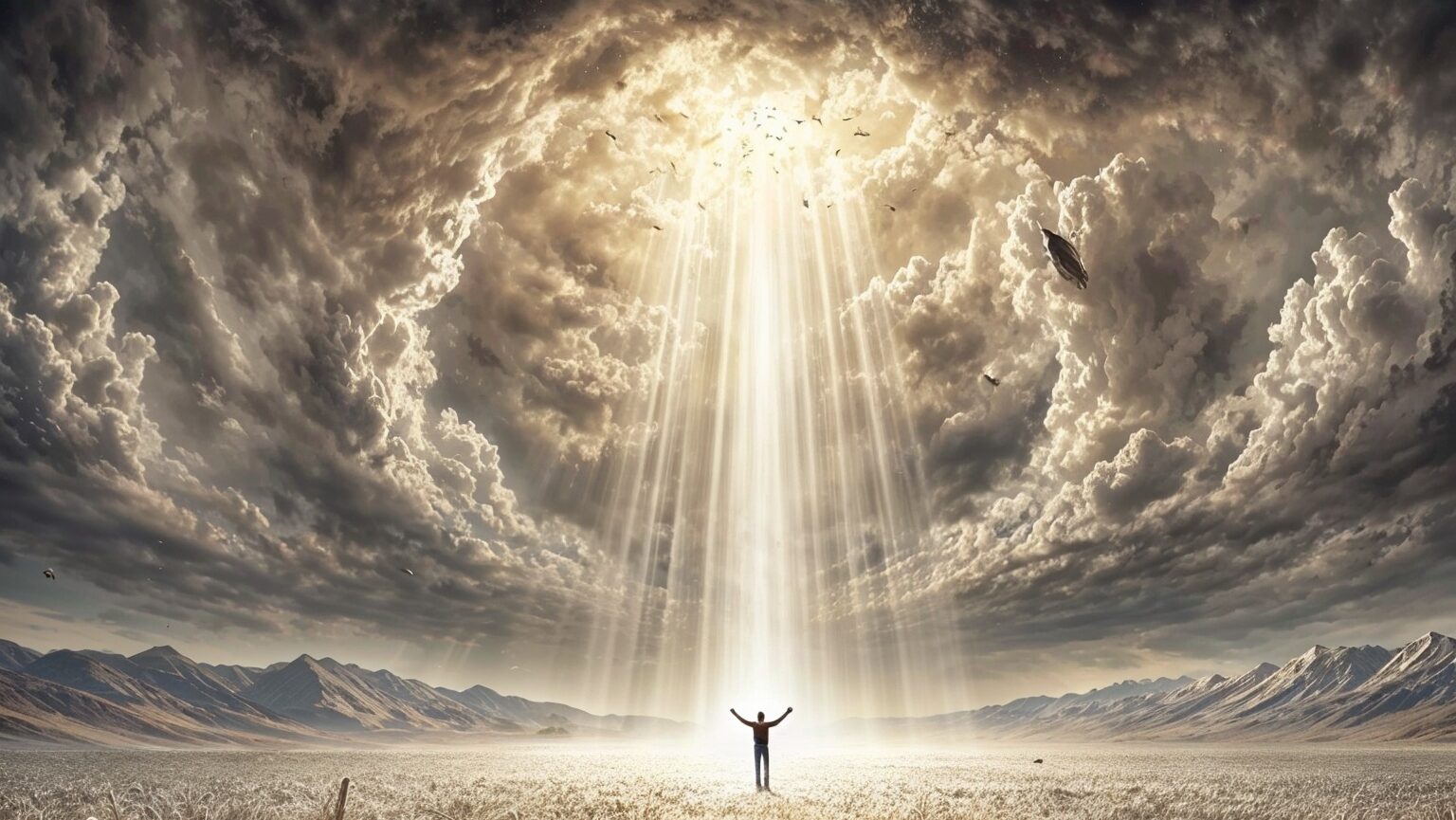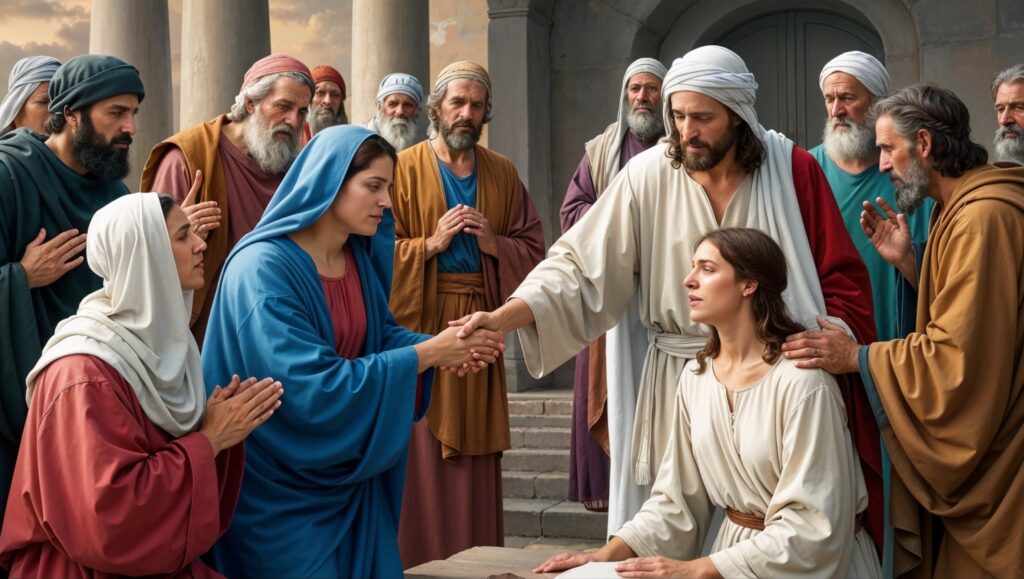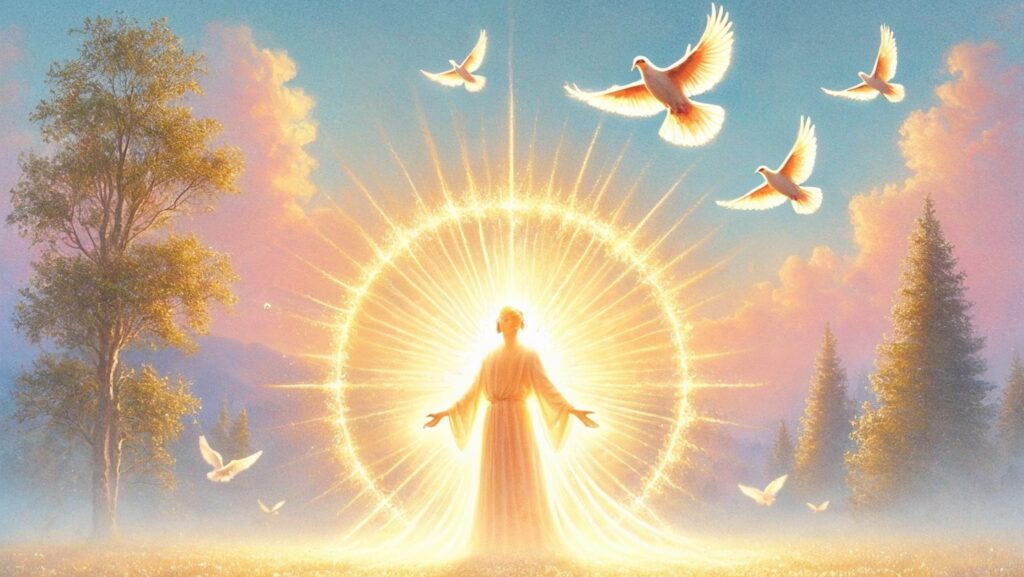Life has a way of leading us into valleys—places where the light seems dim, hope feels distant, and life’s challenges weigh heavily on our spirits. For many, these valleys may look like broken relationships, financial struggles, spiritual dryness, or even grief that feels insurmountable. In Ezekiel 37, we find a vivid and haunting image: a valley filled with dry bones. It’s a scene of utter desolation—a visual representation of hopelessness. Yet, this passage is not about despair; it is about hope. It reminds us that no matter how lifeless or impossible our circumstances may seem, God’s Spirit can breathe new life into them.
Ezekiel 37:1-2 King James Version
1The hand of the Lord was upon me, and carried me out in the spirit of the Lord, and set me down in the midst of the valley which was full of bones,
2 And caused me to pass by them round about: and, behold, there were very many in the open valley; and, lo, they were very dry.
The Valley of Dry Bones: A Message for the Hopeless
Ezekiel’s vision was given during a time when Israel was in exile, cut off from their homeland and their identity as God’s chosen people. They felt abandoned, defeated, and spiritually dead. The dry bones in the valley symbolized their condition—scattered, lifeless, and beyond human restoration. When God asked Ezekiel, “Son of man, can these bones live?” (Ezekiel 37:3), the prophet responded with humility and faith: “Sovereign Lord, you alone know.”
This response is profound because it acknowledges both human limitations and God’s boundless power. Ezekiel couldn’t see how restoration was possible, but he trusted that God could do the impossible. This same trust is what we are invited to embrace in our own valleys.
Hope in Action: What We Learn from Ezekiel 37
- God Sees Potential in Our Brokenness
The dry bones were not hidden from God’s sight; He led Ezekiel directly to them. Similarly, God sees every broken piece of our lives—the dreams we’ve given up on, the wounds we carry, and the fears that paralyze us. He doesn’t turn away from our pain; instead, He steps into it with us. - Restoration Is a Process
When Ezekiel prophesied as commanded by God, the bones began to come together with a rattling sound (Ezekiel 37:7). Tendons formed, flesh appeared, and skin covered them—but they were still lifeless until God breathed His Spirit into them (Ezekiel 37:8-10). This reminds us that restoration often happens in stages. It may begin with small signs of progress—a renewed sense of peace or an unexpected opportunity—but full restoration comes as we continue to trust in God’s timing. - God’s Spirit Brings True Life
The transformation of the dry bones into a living army wasn’t complete until God breathed His Spirit into them (Ezekiel 37:9-10). In the same way, our efforts to rebuild or heal will fall short without the life-giving power of God’s Spirit. His presence within us brings renewal, strength, and purpose. - Hope Requires Obedience
Ezekiel obeyed God’s command to prophesy over the bones even though it must have seemed futile at first. Faith often calls us to act in obedience before we see results. Whether it’s praying persistently for a breakthrough or stepping out in faith despite uncertainty, our obedience opens the door for God to work. - God’s Promises Are Certain
The vision concludes with a powerful promise: “I will put my Spirit in you and you will live” (Ezekiel 37:14). This assurance extends beyond Israel’s restoration—it points to the ultimate hope found in Jesus Christ. Through Him, we are offered new life—not only for today but for eternity.
Finding Hope in Your Valley
Are you standing in your own valley today? Perhaps you feel like those dry bones—scattered by life’s hardships and drained of hope. Take heart: no situation is too far gone for God. Just as He breathed life into those dry bones thousands of years ago, He can breathe life into your circumstances today.
Here are some practical steps to embrace hope:
- Speak Life Over Your Situation
Just as Ezekiel prophesied over the dry bones, speak words of faith over your challenges. Declare God’s promises found in Scripture—promises of peace (John 14:27), provision (Philippians 4:19), and restoration (Joel 2:25). - Invite God’s Spirit Into Your Life
Spend time in prayer and worship, asking God to fill you with His Spirit. His presence brings clarity where there is confusion and strength where there is weakness. - Trust the Process
Restoration may not happen overnight. Be patient and trust that God is working behind the scenes even when you don’t see immediate results. - Seek Community
Just as the dry bones came together to form an army, we are called to walk alongside others in faith. Surround yourself with people who will encourage you and remind you of God’s faithfulness.
Read More About This Devotional
Words of Wisdom: God’s Hand in the Unseen: The Power of the Inexplicable
Quote of the Day: “God Allows Certain Situations So That You May Know He Is in Control”
A Prayer for Hope
Heavenly Father, thank You for being a God who restores hope even in our darkest valleys. When we feel lifeless and defeated, remind us that You have the power to bring life out of death. Help us trust Your promises and lean on Your Spirit as You work to renew us from within. May we find strength in Your Word and courage to walk forward in faith. In Jesus’ name, Amen.
Scripture Reading for the Day
Genesis 10 King James Version
1Now these are the generations of the sons of Noah, Shem, Ham, and Japheth: and unto them were sons born after the flood.
2 The sons of Japheth; Gomer, and Magog, and Madai, and Javan, and Tubal, and Meshech, and Tiras.
3 And the sons of Gomer; Ashkenaz, and Riphath, and Togarmah.
4 And the sons of Javan; Elishah, and Tarshish, Kittim, and Dodanim.
5 By these were the isles of the Gentiles divided in their lands; every one after his tongue, after their families, in their nations.
6 And the sons of Ham; Cush, and Mizraim, and Phut, and Canaan.
7 And the sons of Cush; Seba, and Havilah, and Sabtah, and Raamah, and Sabtechah: and the sons of Raamah; Sheba, and Dedan.
8 And Cush begat Nimrod: he began to be a mighty one in the earth.
9 He was a mighty hunter before the Lord: wherefore it is said, Even as Nimrod the mighty hunter before the Lord.
10 And the beginning of his kingdom was Babel, and Erech, and Accad, and Calneh, in the land of Shinar.
11 Out of that land went forth Asshur, and builded Nineveh, and the city Rehoboth, and Calah,
12 And Resen between Nineveh and Calah: the same is a great city.
13 And Mizraim begat Ludim, and Anamim, and Lehabim, and Naphtuhim,
14 And Pathrusim, and Casluhim, (out of whom came Philistim,) and Caphtorim.
15 And Canaan begat Sidon his first born, and Heth,
16 And the Jebusite, and the Amorite, and the Girgasite,
17 And the Hivite, and the Arkite, and the Sinite,
18 And the Arvadite, and the Zemarite, and the Hamathite: and afterward were the families of the Canaanites spread abroad.
19 And the border of the Canaanites was from Sidon, as thou comest to Gerar, unto Gaza; as thou goest, unto Sodom, and Gomorrah, and Admah, and Zeboim, even unto Lasha.
20 These are the sons of Ham, after their families, after their tongues, in their countries, and in their nations.
21 Unto Shem also, the father of all the children of Eber, the brother of Japheth the elder, even to him were children born.
22 The children of Shem; Elam, and Asshur, and Arphaxad, and Lud, and Aram.
23 And the children of Aram; Uz, and Hul, and Gether, and Mash.
24 And Arphaxad begat Salah; and Salah begat Eber.
25 And unto Eber were born two sons: the name of one was Peleg; for in his days was the earth divided; and his brother’s name was Joktan.
26 And Joktan begat Almodad, and Sheleph, and Hazarmaveth, and Jerah,
27 And Hadoram, and Uzal, and Diklah,
28 And Obal, and Abimael, and Sheba,
29 And Ophir, and Havilah, and Jobab: all these were the sons of Joktan.
30 And their dwelling was from Mesha, as thou goest unto Sephar a mount of the east.
31 These are the sons of Shem, after their families, after their tongues, in their lands, after their nations.
32 These are the families of the sons of Noah, after their generations, in their nations: and by these were the nations divided in the earth after the flood.



